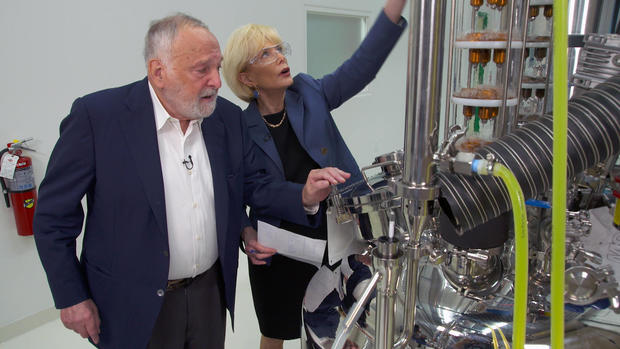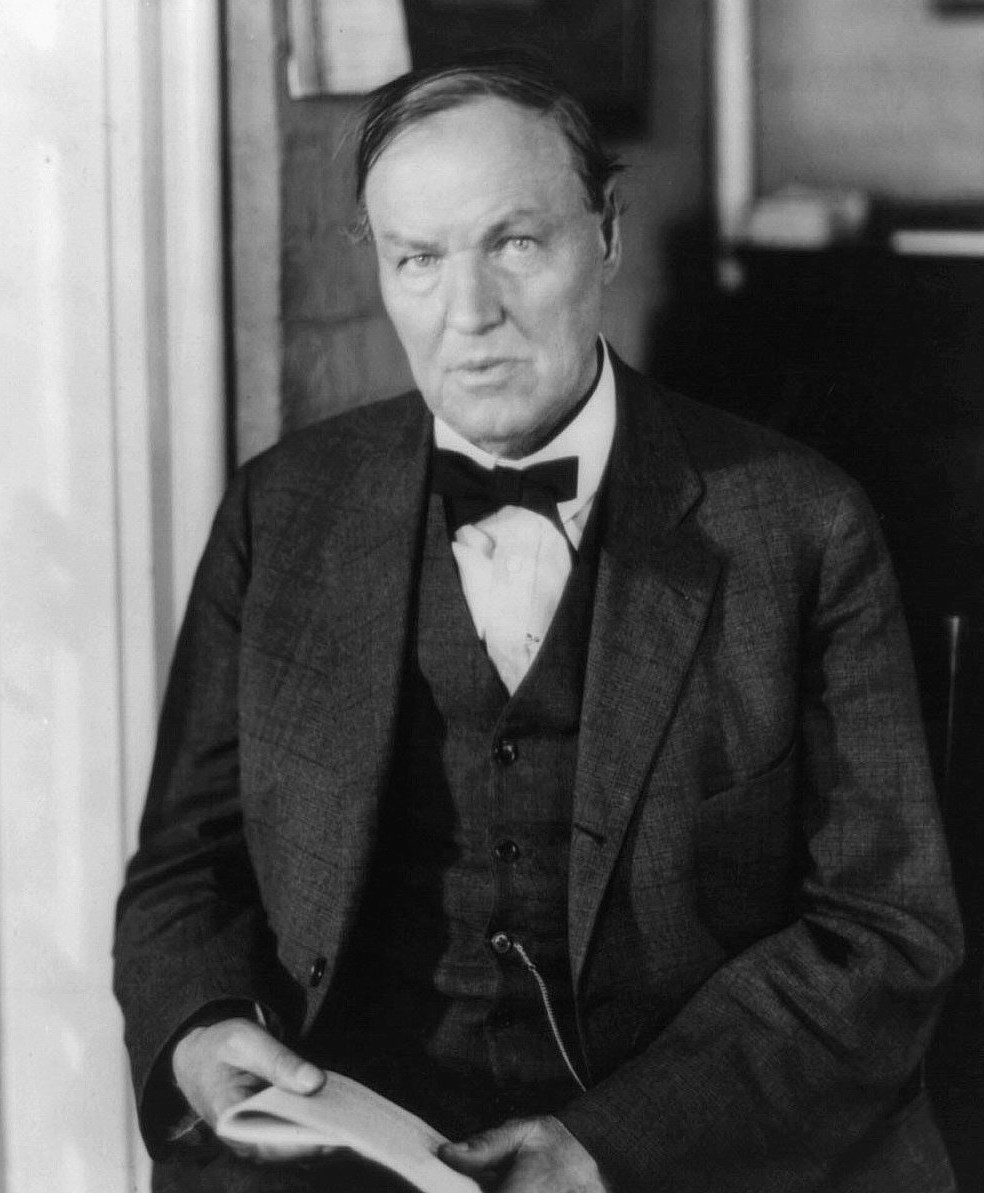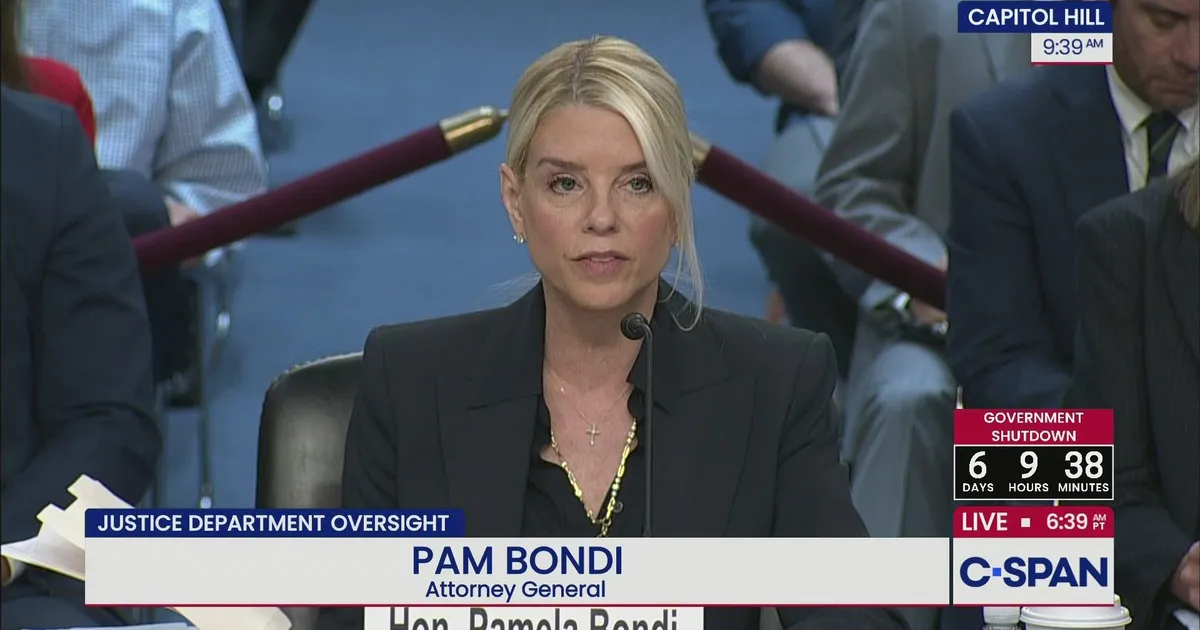Global warming, according to a majority of climate scientists, is a global threat. And an 81-year-old man thinks knows he’s found an answer.

This is the face of genius.
In a story from the CBS program 60 Minutes, Lesley Stahl interviewed a man with no science background or degrees.
Walking around Thoreau’s idyllic Walden Pond, not far from his home, Marshall Medoff came up with a profound epiphany for why science was failing to find an answer to the global threat of warming: “the reason people were failing is they were trying to overcome nature instead of working with it.”
The answer, for Medoff was in the trees and plant life surrounding him.
“…that there’s a lot of energy in plant life,” Stahl says. “It’s in the form of sugar molecules that once accessed can be converted into transportation fuel. The key word is ‘access.’ This sugar is nearly impossible to extract cheaply and cleanly since it is locked tightly inside the plant’s cellulose, the main part of a plant’s cellular walls. What’s so tantalizing is that sugar-rich cellulose is the most abundant biological material on earth.”
“Cellulose is everywhere,” Medoff said. “I mean, there’s just so much cellulose in the world and nobody had managed to use any of it. Couldn’t get at it.
“ ‘Wow, if I can break through this,’ Medoff thought, ‘we can increase the resources of the world maybe by a third or more.’ Who knows?”
With 15-years of time and the kind of persistence that would humble seasoned athletes, Medoff went into seclusion in a garage without a phone. “I’d have a pile of papers that I had collected and I started reading them.”
What makes Medoff, with no basics in science, think he could solve this problem?
“I must have had a very good mother who breastfed me an extra few months or something because I had a lot of security about the fact that I’d get it done. And I never had any doubts.”
The results of all that studying and surety: “Medoff started churning out ideas and patenting them. So many, he needed help.”
Enter Craig Masterman, an MIT graduate in chemistry, whom Medoff hired ten years ago.
“He thinks a lot,” Masterman says. “I implement a lot of things.”
“What Masterman helped implement was Medoff’s novel idea of using these large blue machines, called electron accelerators, to break apart nature’s chokehold on the valuable sugars inside plant life – or biomass,” Stahl says. “Machines like these are typically used to strengthen materials such as wiring and cable. Medoff’s invention was to use the accelerator the opposite way – to break biomass apart.”
What makes Medoff’s machines special?
“It’s basically accelerated electricity,” Masterman explains. “And so what happens is that they get accelerated… Downward where the biomass is, and they ram into the biomass and rip it apart.”
What makes Medoff a genius is that no one had ever thought of this before.
“I think fantastic stuff is simple in hindsight,” Masterman says.
So what products does all the machinery produce?
“Here,” Stahl describes, “agricultural residue, like these corn cobs, is trucked in from nearby farms, ground up, blasted by the electron accelerator and then combined with a proprietary enzyme mix.
“This process, Medoff’s remarkable invention, releases plant sugars that he’s now using to make products he claims will solve some of the world’s most intractable problems, affecting not just the environment but also our health. One of the plant sugars is called xylose.”
And here’s another interesting thing, without altering the nature of the material, xylose is a sugar that “won’t decay your teeth,” Masterman says.
Once he gained access and interest from investors, Medoff and Masterman raised millions of dollars to develop more machines that solve problems like the scourge of the 21st century, accumulated plastic waste.
Medoff’s machines produce the sugar than can then be crafted into knives, forks, spoons, most anything that is used in a disposable manner. The key difference is, their material can degrade.
“Chemical engineer David Jablonski says that Xyleco’s bio-plastic invention can be programmed to disintegrate over specific time spans, ranging from years to as quickly as 11 weeks,” Stahl says.
But, as Stahl points out, Medoff’s biggest discovery is in the fuel that will ultimately take the place of gasoline, ethanol and jet fuel.
“Medoff’s ethanol is much better than regular corn ethanol in terms of greenhouse gas emissions – 77 percent better,” Stahl points out, “according to a study that was independently reviewed.”
So who thinks Medoff is a genius?
Former Shell Oil executive Sir John Jennings, former secretary of the Department of Energy Steve Chu, former secretary of state, George Shultz, and former defense secretary, William Perry, all of whom are on Medoff’s board of directors.
Jennings says, “It won’t turn off oil and gas overnight, obviously. It won’t turn off coal. It won’t turn off nuclear. It won’t turn off all the other sources of energy. But it will find its place. And I think it will find it relatively quickly because of all the boxes that it ticks.”
All of this from the mind of a man that thinks outside the box to use a readily available, natural substance, cellulose, to solve the problems of global warming, fuel, plastic waste and… a sugar that won’t harm you.
That’s genius.
Will return Tuesday.
Comments
Leave a Comment












Very interesting
Wow “Doctor” Medoff! His use of cellulose project can even utilize the plastic waste and so much more. Lets get him some $$$ and help! Great find Jim!